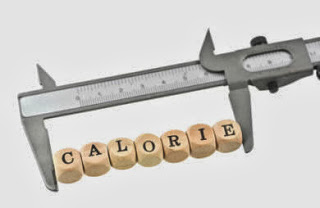Red Deer Personal Trainer asks – Are You Sabotaging Your Fat Loss Goals By Cutting TOO Many Calories?
Has your weight loss reached a plateau? Here’s how to get it back on track.
Ever gotten into a diet and it works really well right off the hop and then BOOM…nothing? Then you know how common it is to see the pounds drop rapidly during the first few weeks only to have your losses come to a standstill soon after. As a Red Deer Personal Trainer, I see this all the time.
As you diet, you think you’re doing everything right. You’re restricting your calories, you’re eating fruits and veggies every meal, and you’re even skipping a meal here and there hoping to reach your weight loss goal. You want to shed pounds fast and your plan seemed to being going well for a while. Now you wonder why the scale isn’t budging.
Contrary to popular belief (and what you may consider common sense), cutting calories doesn’t necessarily mean weight loss. In fact, cutting too many calories can actually keep you from losing weight. Read on to find out why.
A Drastic Calorie Reduction
To lose weight, you must burn more calories than you consume. The average adult requires at least 1,200 calories a day for good health. If you eat too few calories, your body thinks it’s starving and will actually begin storing fat to make sure it has enough stored energy in case you run out completely. When you’re not getting enough calories, your metabolism (the process your body uses to convert food into energy) slows down and burns calories slower in order to conserve energy. It’s at this point that you may stop losing weight and even put on a few pounds. I know that sounds messed up…a lot. But if you have ever worked with a Red Deer personal trainer they probably have told you this.
Keep in mind consuming too few calories may be harmful to your health and leave you feeling shaky and fatigued. In the event your body isn’t getting enough calories for the energy it needs to function, it may turn to the energy stored in your muscles. Your muscles may then break down. As this happens, your metabolism slows even more.
When a low calorie-conscious diet doesn’t go as planned and you don’t see the results you expect you may get frustrated and give up altogether. Many people in this situation often go in the opposite direction and binge. But don’t give in just yet. Instead, get diet savvy.
Calories Aren’t the Enemy
Your body needs calories to function. Without calories, your body can’t survive, much less function well. Fad diets that drastically limit your calorie intake may lead to quick weight loss, but that weight loss will likely come to a screeching halt sometime soon. Not only will your loss come to a halt, but with a fad diet, you’re more likely to gain the weight back as soon as it’s over. A healthier, longer-lasting approach to dieting is to make healthier food choices, eat smaller portions, and be active. You may not lose the weight as fast, but you’re more likely to stick with your changes until they become part of a healthy lifestyle.
It’s a common diet mistake to skip a meal—usually breakfast—in the hopes of cutting calories. Multiple studies have shown that those who routinely skip breakfast weigh more than those who eat breakfast. If you skip a meal, you’re more likely to make up for it later through snacking or overdoing it at mealtime.
Your best bet for a healthy breakfast is a combination of protein and fiber. Try eating an egg, a piece of whole-grain toast, and a piece of fruit for breakfast and you won’t feel hungry until lunchtime.
When It Works
For those who are slightly to moderately overweight, a drastic cut in calories isn’t the way to go. But for the morbidly obese, a very low calorie diet may be beneficial. It’s safe in this instance to cut calories down to 800 a day in hopes of losing three to five pounds a week. Do note, however, that it’s vitally important to be monitored by your doctor during such a diet and to take nutritional supplements to protect your body from vitamin and mineral deficiencies.
If you have any more questions, feel free to reach out to our Red Deer Personal Trainers at 360 Fitness. 🙂



